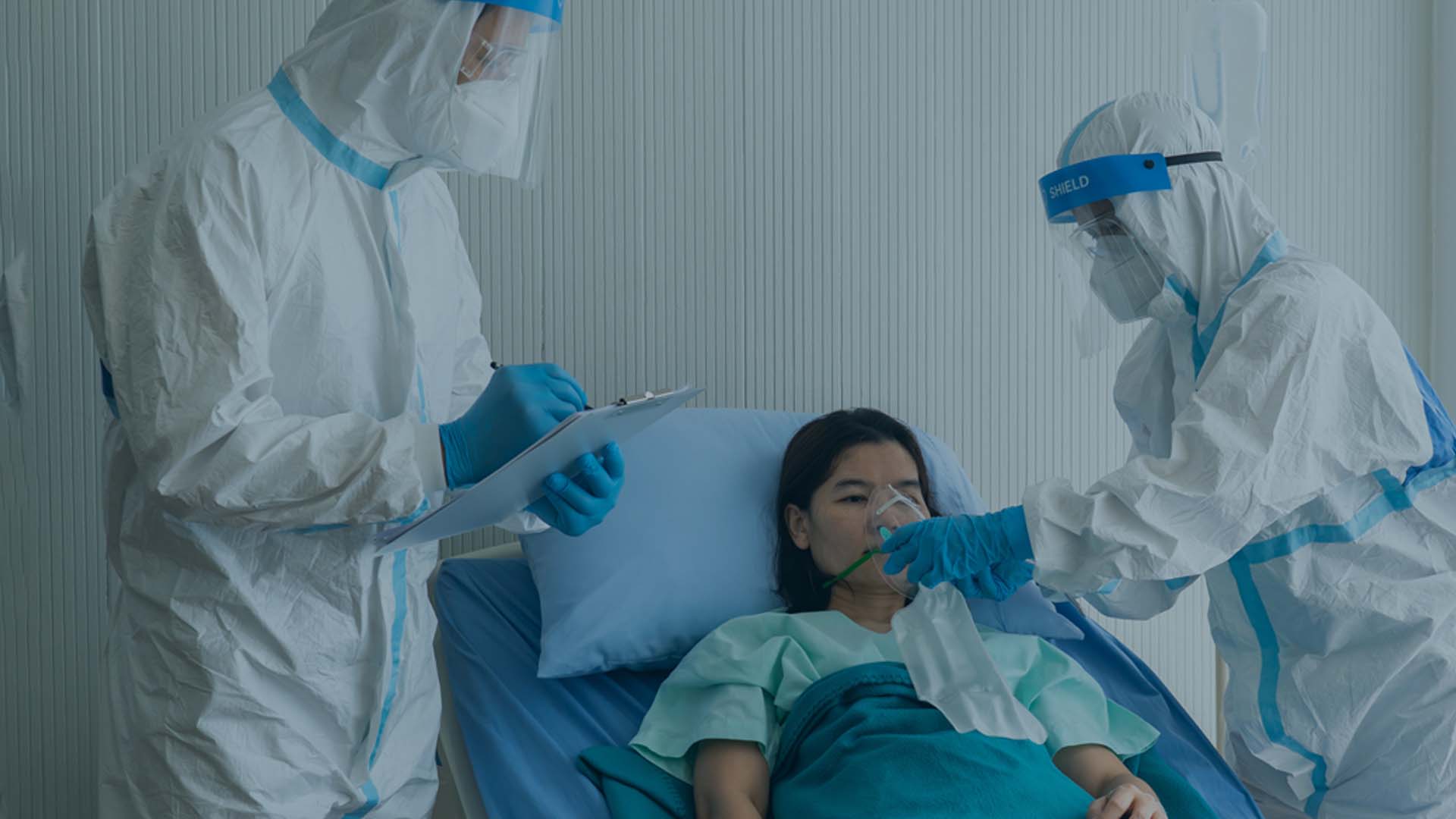Results of the Adaptive COVID-19 Treatment Trial (ACTT)-4 in adults hospitalized with COVID-19 were published in the Lancet Respiratory Medicine on May 23, 2022. This final stage of the ACTT program compared the effect of two combination treatments (baricitinib, a Janus kinase inhibitor, plus remdesivir versus dexamethasone, a corticosteroid plus remdesivir) on progression to mechanical ventilation or mortality in patients who required supplemental oxygen by low-flow, high-flow or non-invasive ventilation. The trial found that both combination treatments resulted in similar mechanical ventilation-free survival by day 29. However, significantly more adverse events were associated with dexamethasone plus remdesivir.
The FHI Clinical team is listed in the manuscript’s Supplementary Appendix for our contribution to the study. FHI Clinical supported ACTT-4 via a subcontract with Leidos Biomedical Research, Inc., operator of the Frederick National Laboratory for Cancer Research.
The analysis showed that mechanical ventilation-free survival at day 29 was similar between the groups: 57.9% (46.1-67.9%) with baricitinib + remdesivir and 67.4% (54.4-77.3%) with dexamethasone + remdesivir. Both groups also had similar median times to recovery: 6 days (95% CI 5.0 to 6.0) with baricitinib + remdesivir and 5 days (95% CI 5.0 to 6.0) with dexamethasone + remdesivir (rate ratio 1.04 [95% CI 0.91 to 1.19]). However, there were statistically significant differences between the groups in occurrence of adverse events: 30% of patients receiving baricitinib + remdesivir and 37% of patients receiving dexamethasone + remdesivir (risk difference: 7.5% [1.6 to 13.3]; P=·014). Compared with patients receiving baricitinib + remdesivir, patients receiving dexamethasone + remdesivir also experience significantly greater treatment-related (4% vs 10%; risk difference: 6.0% [2·8 to 9·3]; P=·00041) and severe or life-threatening grade 3 or 4 adverse events (28% vs 36%; risk difference: 7·7% [1·8 to 13·4]; P=·012).
The authors concluded that these results provide clinicians with additional immunomodulation options for their adult patients with COVID-19, allowing them to individually tailor treatment based on consideration of side-effect profile, ease of administration, cost and patient comorbidities.
This trial is the fourth and final stage in a series of phase 3, randomized, double-blind, placebo-controlled trials to evaluate the clinical efficacy and safety of investigational therapeutic agents in hospitalized adults with laboratory-confirmed COVID-19. The trials were funded by the National Institute of Allergy and Infectious Diseases and enrolled 1010 participants between December 1, 2020, and April 13, 2021, at 67 study sites in five countries: United States (60 sites), South Korea (2 sites), Mexico (2 sites), Singapore (2 sites) and Japan (1 site). Intravenous remdesivir + oral/nasogastric baricitinib (516 participants) or remdesivir + dexamethasone (494 participants) were administered for up to 10 days or until hospital discharge or death.
The FHI Clinical team is excited to have been part of this important work to find efficacious and safe treatments for COVID-19. Additional information about the study can be found on clinicaltrials.gov. For more information about the full ACTT program and outcomes, visit our blog.


